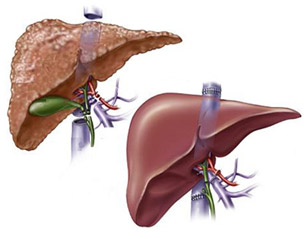Role of diet and lifestyle modification in the management of liver disease in India
Liver diseases are on the rise in
India due to many factors like unhealthy diet, sedentary lifestyle, and high
rates of alcoholic intake. However, besides drugs and medical treatments alone,
effective management of the liver disease often involves other ways. Diet and
lifestyles form a significant role in the prevention as well as the management
of the liver condition. Diet and lifestyles will help in slowing disease progression
and improving overall health of the liver.
Balanced Diet for Healthy Liver
A well-balanced diet is
imperative for maintaining a healthy liver. For individuals with liver
conditions like fatty liver
disease and cirrhosis, nutritious food intake would help curb
inflammation in the liver while preventing further deterioration of that organ.
India, characterized by diets containing high amounts of carbs and fats, needs
to target nutrient-dense food intake.
Crucial recommendations for food intake are as follows
Increase fruits and vegetables: Rich in antioxidants, vitamins, and
fiber, fruits and vegetables help reduce inflammation in the liver and are rich
in nutrients to help maintain it.
Choose lean proteins: Choose lean meats such as chicken or plant-based
proteins such as lentils, chickpeas, and tofu. Reducing the intake of fatty
meats can lower the burden on the liver.
Limit processed foods and sugars: High intake of sugar and
processed foods can exacerbate conditions such as fatty liver disease and
cirrhosis.
Managing Weight and Exercise
Maintaining a healthy weight is
very important in liver diseases
solution in India, especially Non-Alcoholic Fatty Liver Disease (NAFLD)
and Non-Alcoholic Steatohepatitis (NASH). In India, where the statistics of obesity
are on a rise, lifestyle modifications of regular physical activity and body
weight management can reduce liver fat and inflammation.
Regular exercise is one of the
important factors to improve liver function, increase metabolism, and control
underlying diseases like diabetes and hypertension. The recommended minimum is
at least 30 minutes of moderate activity, such as walking or cycling, at least
five days a week.
Alcohol Intake Restriction
Amongst all of these, excessive
alcohol intake leads to liver disease conditions including alcoholic hepatitis
and cirrhosis. Avoidance of drinking or reduction of intake will be essential
for better maintenance of the liver health; however, individuals having disease
should consult with a health provider on safe limits or full abstainers from
alcohol.
Conclusion
In India, a healthy lifestyle
with dietary modification, regular exercise, weight control, and alcohol
reduction can be very helpful in treating liver diseases. Adopting a healthy
lifestyle helps patients with liver conditions to improve their liver function
dramatically, avoid further complications, and live a better quality of life.
Though medical treatment is important, these lifestyle changes play a critical
role in liver disease management and recovery.

Comments
Post a Comment